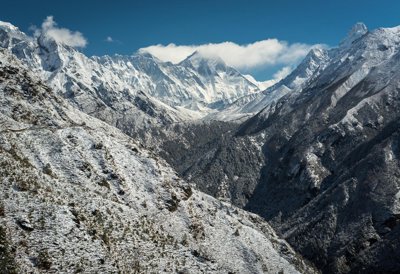How did you get to where you are now?
Initially I studied Geography and Economics for my undergraduate degree at Aberystwyth University and I started to focus on geopolitics and power dynamics in the world of conflict and risk. I was fascinated by the wider field of human interaction across the world and specifically what goes wrong and how best to fix these problems. This led me to specialise in counter-terrorism and diplomacy on the international field for my Masters.
With a slightly more specialised MA in International Relations and Security Studies, I was taken on by a small consultancy to provide insight into aviation security systems and defence analytics as my first job. Following a chance encounter at an RGS networking evening, I changed path and became a Land Consultant for an engineering consultancy.
Longing for a return to the world of security and conflict, I transferred to a security department within the same firm that looked at analysing crime and terrorism to consult on security design and protection. Meanwhile, I applied to join the Civil Service, which after a year of assessments and paper work came through.
I am a Fellow of the RGS and an Associate of the Security Institute.
Was there anything particularly useful that helped you get into this role?
Studying a subject I was interested in was very important to me. If you don’t enjoy what you do, you won’t be able to push yourself to succeed and you won’t be able to perform well if you are unhappy. Studying and seeking employment in fields that allow you to diversify was crucial to my development too. My top tip would be networking! Go out there, talk to other people and learn from their insights and experience.
What do you do as part of your role?
I lead on regional activities for the Global Trade Programme in the Foreign and Commonwealth Office (FCO). The programme’s primary objective is to utilise economic diplomacy to promote global prosperity, growth and gender impacts whilst alleviating poverty in our partner countries. I lead on these developments within the Americas geographical region as well as with Turkey. My typical week includes meeting with all aspects of my team that are crucial in delivering positive change to address trade related issues. I work with our analytical and research team, economic team, commercial, finance, and management teams to bring together every cog our programme needs to ensure it succeeds and delivers on the UK’s commitments.
Alongside my day job, the FCO is a great place to develop your wider skills such as undertaking language training, thematic research and learning. Being in the diplomatic industry also allows for developing international relationships with other countries and organisations, and meeting interesting and exciting individuals at conferences, receptions and diplomatic events.
What skills and characteristics do you need for this role, apart from geographical knowledge?
I believe ‘people skills’ are most important as it is the core to what we do and how we interact. Leadership, communication and negotiation are skills that we use daily. From these we learn and adapt to develop specific knowledge that we need for a particular job, whether it is working in HR, IT, policy, nuclear disarmament, or climate reforms.
How does geography feature in your work/what difference does it make?
Geography is part and parcel of working at the FCO. Having an understanding of the world is what our job is all about, both the human and physical side of things. Having a wide variety of skills and knowledge that geography develops as well as just being able to operate with different people, cultures and locations is very handy to almost every job in the FCO.
Do you get to travel for your role?
Yes, travel is integral to my job. My role is to lead on the development and delivery of projects in foreign countries, often visiting them to build the necessary diplomatic and professional relationships whilst checking in on project progress. Our roles vary between two and four years in length, and can be either UK based or abroad full time.
What advice would you give to someone wanting to go in to this career?
Be yourself, research what the FCO is and what it does and think about how you may be able to contribute to the FCO’s goals. Having a desire to understand how the world works, keeping an open mind and being adaptable are all key traits.
Why did you choose geography? Why should others choose geography?
I’m a geographer at heart, I love travelling, experiencing new cultures and learning about people. I’m naturally inquisitive and love to learn anything new. I think geography is a subject which doesn’t restrict you and allows you to seek out whatever you desire.
* This interview was undertaken in 2019 and was correct at the time of publication. Please note that the featured individual may no longer be in role, but the profile has been kept for career pathway and informational purposes.
Cengizhan Sehir
Job title: Global Trade Programme Manager for the Americas and Turkey
Organisation: Foreign and Commonwealth Office
Location: London, UK

